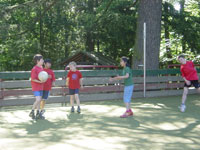At Campus des Nations, Social Studies and Science are taught as large Units of Inquiry. This allows for true in-depth exploration and the natural integration of other relevant subject areas. Different units can last about 6 weeks and cover a variety of topics. All of theses units are outlined Programme of Inquiry.
In Science, the topics are arranged into four main strands:
- Living Things
- Earth & Space
- Matter & Materials
- Forces & Energy
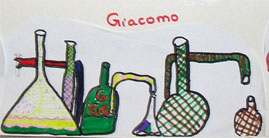
In Social Studies, there are three main areas of exploration:
- History
- Geography
- Society
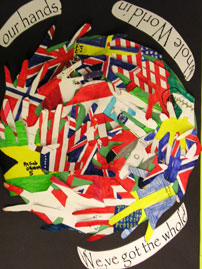
Language is central to a child’s development and is a key element of all curriculum areas at Campus des Nations. Throughout the day and in all subject areas, language is seen as a crucial tool for learning. Students learn to use the language appropriate to different formal and informal situations – for example, the informal language of a class discussion or the formal structures used in report writing. Students at our school do more than master basic language skills. They learn to express feelings and opinions and to support their opinions with sound arguments and research.

English is the language of instruction at Campus des Nations. We also offer French instruction from the age of four, or additional English support for students still mastering the English language (EAL).

Mathematics is a key element in our curriculum. At the Campus des Nations, students gain knowledge of mathematical language, and learn to express their mathematical ideas clearly in five mathematical strands:
- Number Sense & Numeration
- Geometry
- Patterning & Algebra
- Data Management & Probability
- Measurement
Each day, our students learn to identify relationships between mathematical concepts and problem solve in everyday situations.
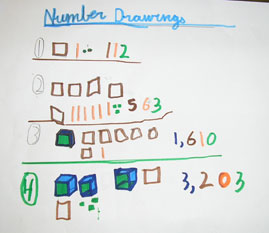
All students at the Campus des Nations receive music instruction each week with a specialty teacher. During these classes, students learn the basic elements of music through listening to, performing and creating music.
Information and CommunicationTechnologies
Each class regularly uses the mobile computer lab. In addition, each classroom has several computers for students to use. Our in-depth computer curriculum focuses on teaching skills that are meaningful for students, and that can be applied to the other subjects they are studying in class.
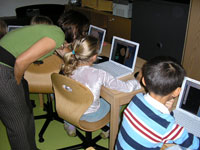
Library
Students visit the library once a week with their class and at their leisure during their recess breaks. During their library period, students learn research skills as well as being exposed to new literature.
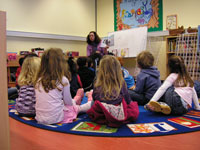
At Campus des Nationsl, Art is taught by a specialty teacher and integrated into the Units of Inquiry. Specific artistic skills are taught, including the elements of design, art interpretation and the creation of artwork that communicates a range of ideas and feelings. Drama is incorporated into the classroom, where students interpret plays and stories using dramatic techniques and communicate using role-play and movement.

Personal and Social Education and Physical Education
All students at Campus des Nations receive 2-40 minute Physical Education periods each week supported by a Physical Education specialist. During this time, students learn the basic elements of healthy living and active participation. During Physical Education class, students are also introduced to fundamental movement skills, including locomotion, manipulation and stability.
Personal and Social Educaiton is incorporated into the Units of Inquiry.
